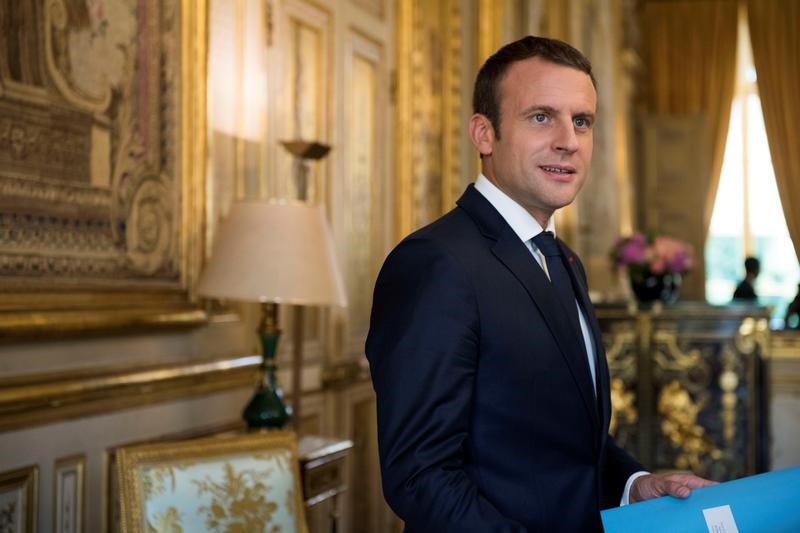(Bloomberg) -- Emmanuel Macron traveled to the former industrial region of Nord-Pas-de-Calais on Monday, signaling a change of strategy as he takes his re-election campaign up a notch to extend the gap with far-right leader Marine Le Pen ahead of a runoff vote.
The French president spent several hours mingling with crowds in Denain, where roughly 15% of voters backed him in Sunday’s ballot, compared to 42% who opted for Le Pen. In the evening in Carvin, another town in the area, he sat in a cafe for a live interview with BFMTV and spoke for 20 minutes about pensions, purchasing power and unemployment.
Macron said he sees “the divisions and people’s difficulties” and defended his social record, especially a cap on energy bills. He vowed to listen to unions and charities, and said workers should have the same benefits as shareholders when companies are profitable.
The trip was a clear attempt by Macron, 44, to try to shed his image as “a president of the rich” as he tries to convince more voters to keep him at the helm of Europe’s second-largest economy on April 24.
Le Pen finished 4.7 percentage points behind Macron in Sunday’s first round. While polls give him an advantage heading into the final phase of the campaign, Le Pen has already added more than 10 points to her showing in the 2017 election. To win, she needs to build an anyone-but-Macron coalition and many left-wing voters would have to abstain, or back her.
The 53-year-old nationalist didn’t waste any time getting out on the stump, either. She gave a brief press conference in the afternoon and later in the day was in Yonne, a couple hours drive south of Paris, where she spoke about agriculture, food sovereignty and surging food and energy costs.
Investors are watching this stage of the election especially closely. If Le Pen were to unseat Macron, it would create a shock for the European Union to compare with Donald Trump’s U.S. election win of 2016. When the gap between them narrowed last week, French 10-year yields held near a seven-year high.
Le Pen’s Resilience Makes France’s Election a Much Closer Race
While Le Pen has benefited from a tailwind largely thanks to her focus on retail politics, Macron’s momentum stalled amid criticism that he was snubbing voters and neglecting domestic matters because of the crisis in Ukraine.
Why France’s Macron Needs Every Vote to Beat Le Pen: QuickTake
As the president began his charm offensive, his allies were zeroing in on Le Pen’s links to Russia.
Finance Minister Bruno Le Maire told RTL radio on Monday that voters have a choice between a president who had put France at the forefront of Europe and an “ally of Vladimir Putin.”
It’s not clear how successful that strategy will be.
Le Pen secured a loan for her party from a Russian company in 2014 and visited Putin in Moscow in 2017. But she distanced herself from the Russian president after his invasion of Ukraine even as some people close to her have continued to express sympathy. So far, polls show voters don’t care.
For his part, Macron has been speaking to Putin regularly first to try to stop Putin’s invasion of Ukraine, and then to try and end the war. His rivals have accused him of naivety in his interactions with the Russian leader who he invited to Versailles within weeks of taking office five years ago.
In Denain, Macron was asked if he’ll sit down with Le Pen as planned on April 20 after having refused to debate the other presidential hopefuls.
“It’s program against program, so now there will be a debate,” he replied.
Read more: France’s Stunning Economic Rebound May Seal Macron’s Re-Election
(Updates with comment throughout.)
©2022 Bloomberg L.P.
